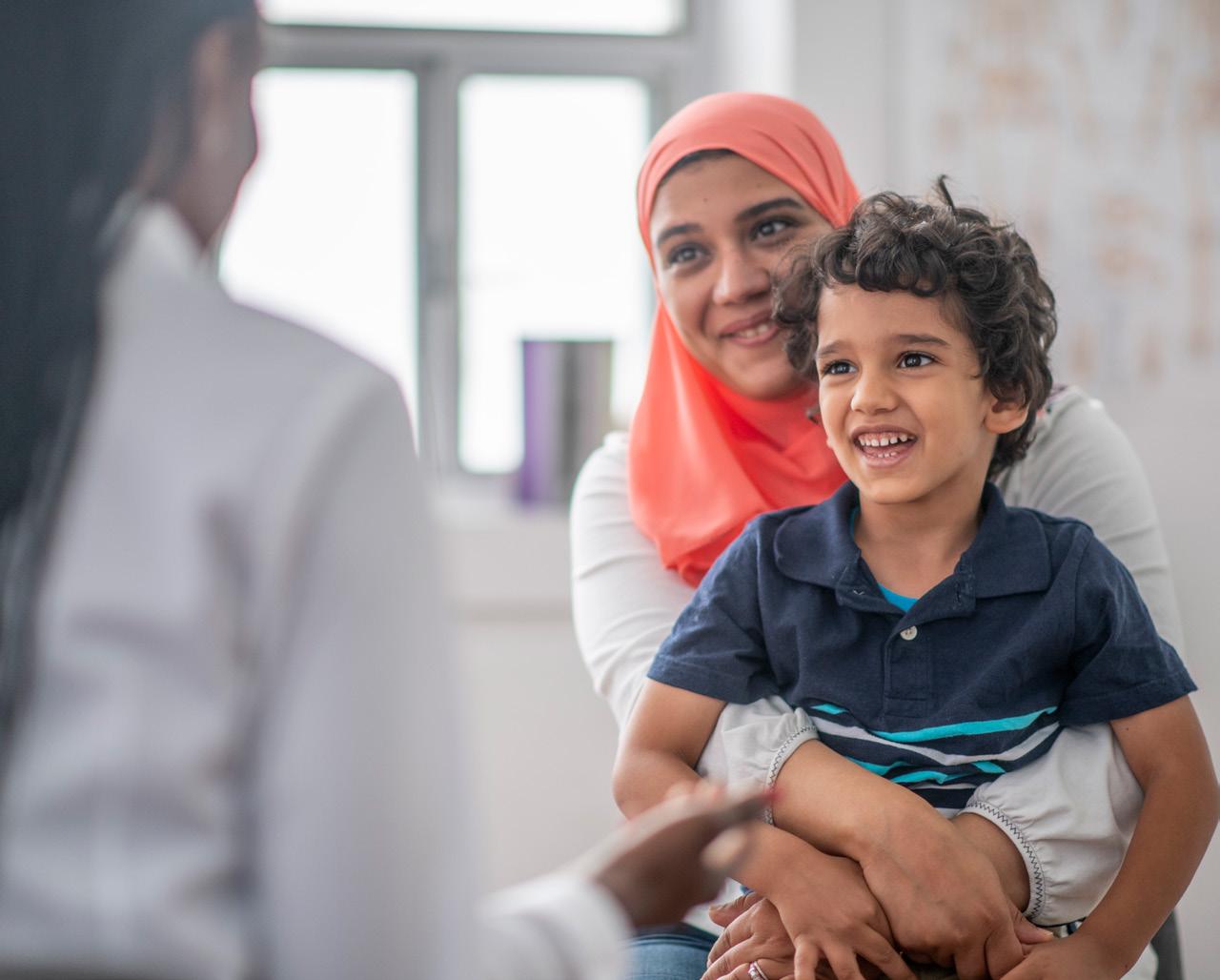
3 minute read
Physicians working with children, older adults share passion for patient care
By Greg Basky
Pediatricians and geriatricians care for people at opposite ends of the age spectrum. While Saskatchewan’s Dr. Jenny Basran and Dr. Abid Lodhi took different paths to their respective specialties and have markedly different workdays, they share a common passion for meeting the care needs of the patient populations they serve.
Dr. Jenny Basran developed her passion for working with older adults early on in life. When she was growing up in small town Cabri, in southwest Saskatchewan, Basran’s parents ran the Chinese cafe. “I spent most of my time with ‘coffee row,’ many of whom were older adults who stopped by as many as three times a day.” The seed was planted to pursue geriatric medicine while she was an undergraduate at the University of Alberta. There she had the opportunity to help a physician who was studying confusion in older adults after orthopedic surgery.
Regina’s Dr. Abid Lodhi hadn’t originally planned to be a pediatrician. After he finished his medical training in Pakistan, he was waiting on a surgical internship spot. But after a short, chance stint caring for young patients, he was hooked. “I just liked it so much,” recalls Dr. Lodhi. “It’s quite rewarding. It changed my life from there on, when I started working with children.”
A day in the life of...
While Dr. Lodhi juggles some teaching as an assistant professor and administrative duties as the Saskatchewan Health Authority’s area lead for pediatrics in Regina, he spends most of his time caring for children. In a regular day at the office, Dr. Lodhi, who’s been practising pediatrics for eight years, sees 20 to 25 patients, ranging from premature babies and newborns up to 18-year-old young adults. On one “typical” day this year (before COVID-19 reached the province), he treated kids with pneumonia, asthma, ADHA, anxiety, chronic abdominal pain, and constipation; he also saw a couple of well newborns and a pair of extremely premature babies. On call the night before, he admitted children with epilepsy, complex pneumonia, severe eczema with secondary infection, and croup.

Dr. Abid Lodhi
“When a child gets sick, it’s not just one person affected,” says Lodhi. “It’s at least three people. Parents are worried. Kids can’t go to daycare. Parents have to stay home to take care of things.” The goal, says Dr. Lodhi, is happy children and happy parents.
Although Dr. Basran’s focus is on patients at the other end of the lifecycle, like Lodhi she, too, wears multiple hats: associate professor in geriatric medicine at the U of S College of Medicine, senior medical information officer with the Saskatchewan Health Authority (SHA), and mentor to health professionals working with seniors. While she doesn’t provide direct patient care, Basran understands the importance of her coaching role: “Since there is unlikely to be enough people with extra training in geriatrics, it is essential that we make sure the core knowledge is passed on to anyone working with older adults.” Her two days a week of clinical work is split between the Geriatric Evaluation and Management (GEM) program at Saskatoon City Hospital, and the Community Health Centre at Market Mall. Her position with the SHA, which she shares with emergency physician Dr. Vern Behl, is all about using technology to improve care – whether that’s broadening access to electronic health information, supporting virtual care, or using analytics to make better informed decisions.
Geriatricians are experts at complexity, according to Dr. Basran. “We look at the entire individual – all their medical conditions, their medications, and the environment and supports they have. In complex situations, you need a guiding light to determine which direction to go, and in geriatrics, we are able to focus on what is important to the patient.”
Motivations in their work
What gets Dr. Basran out of bed every morning is the belief that in some small way, she’s making things better – “whether at the individual patient level with my advice, the clinician level with my support, or the administrative level with bringing in a geriatrician lens to decision making.”
Dr. Lodhi feels flattered that he’s something of a role model for his young patients. “Lots of parents have told me their kids are playing Dr. Lodhi at home.” He finds that the bond he develops with children and their parents is the most rewarding aspect of his work. “It’s not just a one-way street. If you deal with people with care, you get love and respect in return.” ◆










